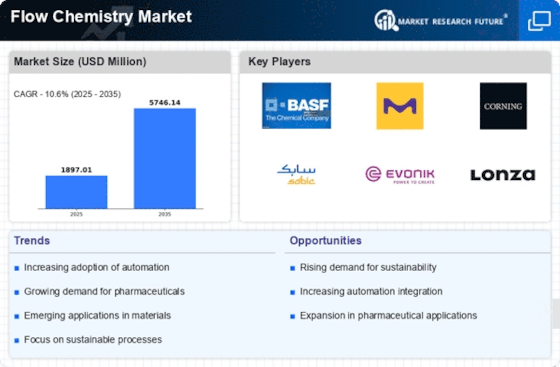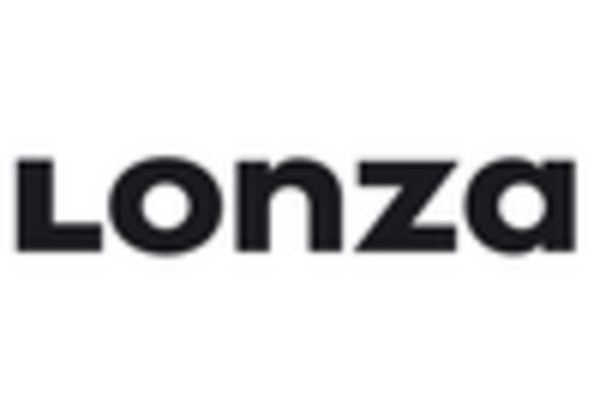Market Analysis
In-depth Analysis of Flow Chemistry Market Industry Landscape
The flow chemistry market is a dynamic and rapidly evolving sector driven by various factors that influence its growth and development. Flow chemistry, also known as continuous flow chemistry, is a technology that enables chemical reactions to occur in a continuous stream of reagents flowing through a reactor. This market's dynamics are shaped by a combination of factors, including technological advancements, regulatory landscape, industry trends, and market demand.
One of the primary drivers of the flow chemistry market is the increasing adoption of this technology across various industries. Flow chemistry offers several advantages over traditional batch processes, including improved efficiency, scalability, and safety. As a result, industries such as pharmaceuticals, fine chemicals, petrochemicals, and academia are increasingly embracing flow chemistry for the synthesis of chemical compounds and pharmaceutical intermediates. The scalability of flow chemistry enables manufacturers to produce chemicals and pharmaceuticals in larger quantities, meeting the growing demand from diverse end-use industries.
Technological advancements play a pivotal role in shaping the flow chemistry market dynamics. Continuous innovation in reactor design, automation, and process control systems has led to the development of more efficient and versatile flow chemistry systems. These advancements have resulted in higher throughput, improved reaction yields, and enhanced selectivity, thereby expanding the scope of applications for flow chemistry across various industries. Additionally, the integration of flow chemistry with other technologies such as in-line analytics and artificial intelligence further enhances process optimization and productivity.
The regulatory landscape also influences the dynamics of the flow chemistry market, particularly in industries such as pharmaceuticals and chemicals. Regulatory agencies impose stringent requirements for product quality, safety, and environmental sustainability, driving the adoption of innovative technologies like flow chemistry. Flow chemistry offers better control over reaction parameters, leading to improved product consistency and purity, which is essential for compliance with regulatory standards. Furthermore, the reduced use of hazardous reagents and solvents in flow chemistry processes aligns with the industry's efforts to minimize environmental impact and ensure workplace safety.
Market demand for flow chemistry is driven by various factors, including the need for cost-effective manufacturing solutions, increasing demand for specialty chemicals and pharmaceuticals, and growing interest in sustainable manufacturing practices. Flow chemistry enables manufacturers to achieve higher productivity and cost savings by reducing cycle times, minimizing waste generation, and optimizing resource utilization. Moreover, the ability to perform complex reactions under continuous flow conditions allows for the synthesis of novel chemical compounds and pharmaceuticals that may not be feasible using traditional batch methods.
Industry trends such as the shift towards personalized medicine, the rise of contract manufacturing organizations (CMOs), and the growing interest in green chemistry further drive the demand for flow chemistry solutions. Flow chemistry offers a flexible and efficient platform for the rapid synthesis of custom-made pharmaceuticals and fine chemicals, catering to the evolving needs of the healthcare and chemical industries. Additionally, the implementation of flow chemistry in green manufacturing processes aligns with global sustainability initiatives and enhances the industry's competitiveness in the market.


















Leave a Comment